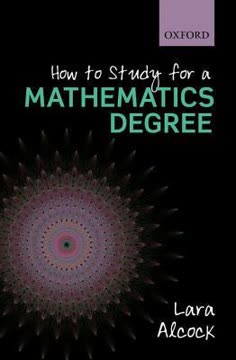Key Takeaways
1. Embrace the transition: University mathematics is a new challenge
University mathematics is supposed to challenge even the brightest and most hardworking students.
Shift in focus. University mathematics marks a significant departure from school-level math. The emphasis shifts from calculation to proof, requiring students to interact with mathematical concepts in new ways. This transition can be challenging, but it's a normal part of academic growth.
Realistic expectations. Understanding everything immediately is not the goal. It's normal to struggle with new concepts initially. Success in university mathematics is about developing deep understanding over time, not instant mastery. Students should aim to grasp the main ideas and principles, recognizing that complete understanding of every detail may not be achievable or necessary.
Adapt and grow. To succeed, students must:
- Adjust their study techniques
- Develop abstract thinking skills
- Learn to construct and understand proofs
- Cultivate mathematical intuition
- Embrace challenges as opportunities for growth
2. Master the art of abstract thinking and proof construction
Proofs, logical deductions and objects
Abstract objects. University mathematics deals extensively with abstract objects. These include familiar concepts like numbers and functions, as well as more advanced ideas like binary operations and symmetries. Learning to think in terms of these abstract objects is crucial for understanding higher-level mathematics.
Proof construction. Proofs are central to university mathematics. They require:
- Understanding definitions and theorems
- Logical reasoning
- Clear communication of mathematical ideas
Students should practice different proof techniques:
- Direct proof
- Proof by contradiction
- Proof by induction
- Uniqueness proofs
Developing these skills takes time and practice, but they form the foundation of advanced mathematical thinking.
3. Develop effective study habits and time management skills
To lead students to further consideration of such points, and to avoid replicating material that is laid down well elsewhere, I have included a further reading section at the end of each chapter.
Effective reading. Reading mathematics is different from reading other subjects. It requires active engagement, often involving working through examples and proofs on your own. Develop a system for:
- Taking notes
- Summarizing key concepts
- Creating concept maps
- Reviewing and revising regularly
Time management. University courses move at a faster pace than school. Effective time management is crucial:
- Create a term planner
- Develop a weekly study schedule
- Prioritize tasks based on urgency and importance
- Allow time for revision and problem-solving practice
Balanced approach. Aim to understand a large portion of the material well, rather than trying to cover everything superficially. Focus on central concepts and their applications.
4. Engage actively with lectures and utilize available resources
If you want to learn from a lecture, you have to go to it.
Active participation. Lectures are a primary source of information in university. To maximize their value:
- Attend regularly
- Prepare by reviewing previous material
- Take effective notes
- Ask questions when concepts are unclear
- Review and summarize lecture content soon after
Utilize resources. Universities offer various support systems:
- Office hours with lecturers
- Tutorials and problem classes
- Mathematics support centers
- Online resources and virtual learning environments
Don't hesitate to seek help when needed. Engaging with these resources can significantly enhance your understanding and performance.
5. Cultivate problem-solving skills and mathematical intuition
Everyone should find this encouraging—you might discover that you have a real flair for something you've never even considered before.
Problem-solving strategies. Develop a toolkit of problem-solving approaches:
- Break complex problems into smaller parts
- Look for patterns and analogies
- Work backwards from the desired result
- Use visualization and diagrams
- Apply known theorems and techniques creatively
Build intuition. Mathematical intuition comes with experience. To develop it:
- Work through many examples
- Explore variations of problems
- Try to predict results before calculating
- Reflect on why solutions work
Embrace challenges. Don't shy away from difficult problems. They often provide the most valuable learning experiences and can lead to deeper understanding of mathematical concepts.
6. Write mathematics clearly and professionally
If you want to be employable and you want to be successful, then obviously it's important to be good at working out how to solve problems. But it's also important to be able to communicate convincingly about whatever you think is the best solution.
Clear communication. Writing mathematics well is crucial for:
- Demonstrating understanding
- Earning better grades
- Preparing for future careers
Key aspects of good mathematical writing:
- Use precise language and correct notation
- Structure arguments logically
- Provide clear explanations for each step
- Use appropriate examples and counterexamples
Professional presentation. Treat mathematical writing as a separate skill to be developed. Practice writing proofs, explanations, and solutions clearly and concisely. This skill will be valuable in academic and professional settings.
7. Balance academic success with personal growth and career preparation
Mathematicians are grateful when people point out errors, because it's usually much easier to fix them immediately than to go back and do it later.
Holistic development. University life offers opportunities beyond academics:
- Join mathematics clubs or societies
- Attend seminars and guest lectures
- Consider internships or work placements
- Develop soft skills like teamwork and communication
Career preparation. Start thinking about career options early:
- Explore different areas of mathematics
- Consider how mathematical skills apply to various industries
- Seek advice from career services
- Network with alumni and professionals
Continuous learning. Mathematics is a vast and evolving field. Cultivate a mindset of lifelong learning:
- Stay curious about new mathematical developments
- Read beyond course materials
- Consider postgraduate studies or research opportunities
Remember, becoming a successful mathematician or using mathematical skills in other careers is a journey that extends beyond your undergraduate years. Embrace the challenges and opportunities that come with studying mathematics at the university level.
Last updated:
FAQ
1. What is How to Study for a Mathematics Degree by Lara Alcock about?
- Comprehensive study guide: The book explains how to approach university-level mathematics, focusing on the transition from procedural school math to abstract reasoning, proofs, and independent study.
- Skills and mindset: It covers essential study skills, time management, and the mindset needed to succeed in a mathematics degree.
- Not a textbook: Rather than teaching specific math content, it provides strategies for learning, understanding, and thriving in undergraduate mathematics.
- Preparation for challenges: The book prepares students for both the intellectual and practical demands of university mathematics.
2. Why should I read How to Study for a Mathematics Degree by Lara Alcock?
- Bridges educational gaps: The book addresses the common struggles students face when moving from school to university mathematics, such as understanding proofs and abstract concepts.
- Research-based strategies: It draws on mathematics education research to offer practical advice and proven study techniques.
- Boosts efficiency and confidence: Readers learn how to study smarter, manage their time, and communicate mathematics clearly, leading to greater academic success and enjoyment.
- Normalizes challenges: The book reassures students that initial struggles are normal and provides strategies to overcome them.
3. What are the key takeaways from How to Study for a Mathematics Degree by Lara Alcock?
- Shift to abstraction: University mathematics requires a move from procedural calculation to abstract reasoning, focusing on definitions, theorems, and proofs.
- Active, independent learning: Success depends on developing skills for independent reading, writing, and synthesizing mathematical ideas.
- Effective study habits: Techniques like summarizing notes, creating concept maps, and prioritizing study topics are emphasized.
- Growth mindset: Persistence, flexibility, and learning from mistakes are crucial for adapting to the demands of a mathematics degree.
4. What are the main differences between school mathematics and university mathematics according to Lara Alcock?
- Procedures vs. proofs: School math emphasizes calculation and following instructions, while university math focuses on constructing and understanding proofs.
- Abstract thinking: University mathematics involves thinking about numbers, functions, and other concepts as abstract objects, often organized hierarchically.
- Greater responsibility: Students must make more decisions about which methods to use and how to approach problems, rather than relying on explicit instructions.
- Conceptual challenges: The shift to abstraction and formal reasoning can be a significant adjustment for many students.
5. How does Lara Alcock define and explain abstract objects in university mathematics?
- From processes to objects: Concepts like numbers and functions are initially understood as processes but are later treated as objects in their own right.
- Hierarchical structure: Mathematical objects are organized in layers, with higher-level objects depending on the understanding of lower-level ones.
- New object types: The book introduces relations, binary operations, and symmetries as mathematical objects, explaining their properties and significance.
- Importance for advanced math: Thinking of these entities as objects is essential for engaging with higher-level mathematics.
6. What advice does How to Study for a Mathematics Degree by Lara Alcock give about understanding and using mathematical definitions?
- Precision and operability: Mathematical definitions are exact, with no exceptions, and provide clear criteria for use in proofs.
- Inclusion and exclusion: Students should consider both examples that fit a definition and those that do not to fully grasp its boundaries.
- Adjusting intuition: Formal definitions may differ from everyday intuition, especially in boundary cases, requiring students to refine their understanding.
- Foundation for reasoning: Mastery of definitions is crucial for constructing and understanding proofs.
7. How does Lara Alcock describe the role and structure of theorems in university mathematics?
- Logical necessity: Theorems express relationships that must be true once definitions are established, often in “if… then…” form.
- Understanding through examples: Students are encouraged to examine examples and analyze the logical structure to comprehend theorems.
- Precise language: The book emphasizes the importance of using logical terms like “if,” “only if,” and quantifiers correctly.
- Avoiding misinterpretation: Everyday meanings of logical words can differ from their mathematical usage, so precision is essential.
8. What insights does How to Study for a Mathematics Degree by Lara Alcock provide about mathematical proofs and their importance?
- Proofs as logical arguments: Proofs demonstrate why theorems are true, starting from definitions and using logical deductions.
- Demystifying proofs: Many school-level calculations are simple proofs; university proofs are more formal but follow similar principles.
- Building coherent theory: Proofs help mathematicians understand how results fit into a larger, consistent framework.
- Practice in rigorous thinking: Engaging with proofs develops the logical reasoning skills central to advanced mathematics.
9. What are the common types of proofs and proof strategies discussed by Lara Alcock?
- Direct proof: Involves logically deducing the conclusion from the premises step-by-step.
- Proof by contradiction: Assumes the opposite of the desired result and shows this leads to a contradiction.
- Proof by induction: Proves a base case and then shows that if the statement holds for one case, it holds for the next, covering all natural numbers.
- Additional techniques: Includes proof by cases, uniqueness proofs, and algebraic manipulations to simplify arguments.
10. What strategies does Lara Alcock recommend for reading and understanding mathematics texts and notes?
- Active, independent reading: Students should develop skills to learn from written materials, not just lectures.
- Identifying structure: Recognize definitions, theorems, examples, and proofs to engage effectively with the material.
- Summarizing and mapping: Creating summary lists and concept maps helps synthesize information and see connections.
- Using examples and diagrams: Checking examples and using diagrams can clarify abstract concepts and aid memory.
11. How does How to Study for a Mathematics Degree by Lara Alcock address time management and overcoming panic?
- Planning and prioritization: The book suggests creating term and weekly plans, prioritizing tasks, and breaking study into manageable chunks.
- Realistic expectations: Students are encouraged to accept that not all tasks will be completed perfectly and that setbacks are normal.
- Dealing with panic: When overwhelmed, making a prioritized list and working through tasks in short, timed sessions can restore control.
- Seeking support: Utilizing university resources and checking progress with a trusted person can help manage stress and maintain progress.
12. What does Lara Alcock say about interacting with lecturers, tutors, and peers in a mathematics degree?
- Active engagement: Students should take initiative in seeking help, preparing questions, and using office hours or tutorials.
- Effective communication: Clear, polite communication—especially in emails and group settings—is important for productive interactions.
- Group study: Working with peers can enhance understanding, but students should avoid distractions and ensure meaningful engagement.
- Utilizing support services: The book encourages early and regular use of university resources like support centers and counseling for academic and personal growth.
Review Summary
How to Study for a Mathematics Degree receives mostly positive reviews, with readers praising its insightful advice for transitioning to university-level mathematics. Many find it helpful for understanding what to expect in a math degree program and appreciate the author's anticipation of common questions and concerns. Some readers suggest it's most beneficial when read before starting university or early in the degree. A few critics note it may be less useful for advanced students or those in other disciplines. Overall, readers value the book's guidance on proofs, reading mathematics, and adjusting to university life.
Similar Books
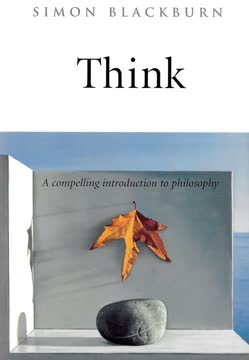
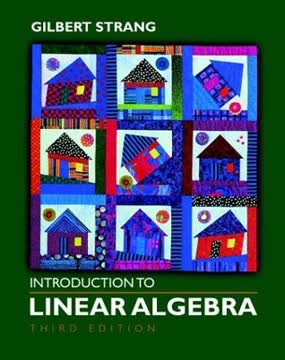
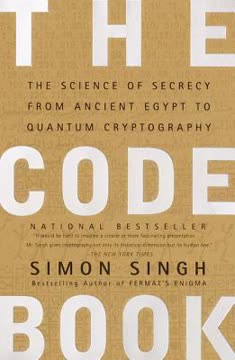

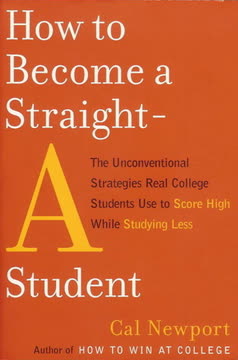
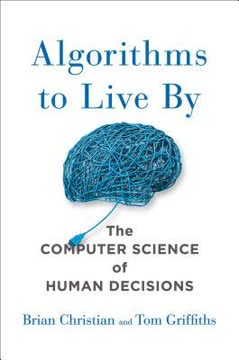

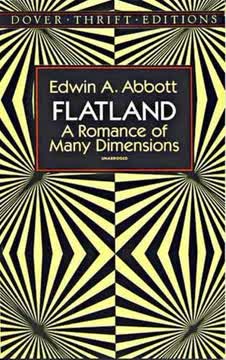
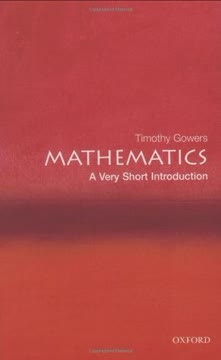

Download PDF
Download EPUB
.epub digital book format is ideal for reading ebooks on phones, tablets, and e-readers.
